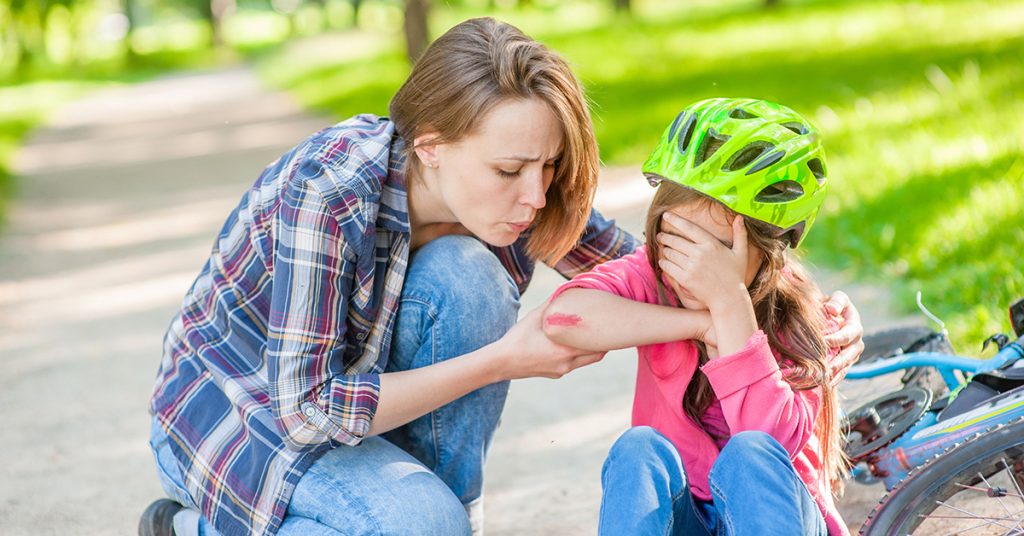Posts Tagged ‘Boston concussion injury lawyers’
Brain Injury Awareness Month: Simple Steps You Can Take to Protect Your Children

March is Brain Injury Awareness Month, a good time to ask if you or your children need a new bicycle helmet.
Each March, the Centers for Disease Control and Prevention (CDC) observes Brain Injury Awareness Month to highlight new research on injury prevention.
This is a good time for parents to reflect upon what you can do to protect yourselves and your children from a concussion. To start, you can purchase a bicycle helmet for your child and buckle them up in an age-appropriate car seat. Before you sign up for youth sports, really learn about the activity and consult your child’s pediatrician. The CDC recently shared this study, which suggests non-contact or flag football programs may be safer for children under 14 because there are fewer head impacts.
You can also commit to learn how to recognize the symptoms of a concussion so you can properly respond and seek medical attention for your child. This is an ongoing learning process which gets stronger, through conversation with your pediatrician, your child’s school and with your own family members.
Wear a Helmet. In Massachusetts, your child is required to wear a protective helmet while riding a bicycle or scooter. Read our blog, “How to Fit a Bicycle Helmet.” We also share some resources on Massachusetts helmet laws at the bottom of this webpage.
Massachusetts Concussion Protocol for Students. Before each season, your child’s middle or high school has a responsibility to share information about the Massachusetts youth sports concussion law with you.
Massachusetts law requires schools to develop concussion safety programs and provide training for students, parents, coaches and others on how to identify concussion symptoms. Schools must also explain the protocol for removing a student who has been injured from play.
Students suspected of having a concussion must see a doctor and must receive a doctor’s note before returning to practice or a game. It is essential to understand just how your school or coach will communicate with you.
No one ever wants to think about their child possibly suffering an injury. But the state protocol is largely about taking steps to prevent an injury and how to identify potential injuries. This is essential reading that will help you protect your child. Take time to read if even if you have already seen these materials in the past. Also take time to share and discuss this information with your spouse, baby sister or family members who care for your child.
Learn more about the Massachusetts concussion guidelines for student athletes and the CDC’s Heads Up Concussion page.
Commit to Watch for Symptoms. There are some situations when it is clear a parent should seek medical attention for their child. For instance, if your child’s school alerts you or if your child was injured in a car accident, those are your warnings.
However, the symptoms of a concussion may be less clear when children are injured while playing at home or other situations. To help you learn the signs, we have compiled a list of physical, emotional and sleep-related symptoms which may indicate you should contact your child’s pediatrician on our concussion webpage. These are compiled from the CDC web page on concussion symptoms.
Please consider the symptoms collectively, along with your child’s recent activities on the sports field or playing at home or with friends. If you have reason for concern, make the decision to contact your child’s pediatrician or visit the emergency room.
Free Legal Consultation – Boston Personal Injury Lawyers
At Breakstone, White & Gluck, our personal injury lawyers have extensive experience representing those who have suffered concussions, second-impact concussions and brain injuries. Over the past three decades, our attorneys have counseled and guided many clients to the financial results they need to recover from these complex injuries. For a free legal consultation, contact us at 800-379-1244 or 617-723-7676.
In addition to our work, Breakstone, White & Gluck works to help children and families protect against head injuries through our Project KidSafe campaign. We have proudly given away more than 30,000 bicycle helmets to children across Massachusetts.


